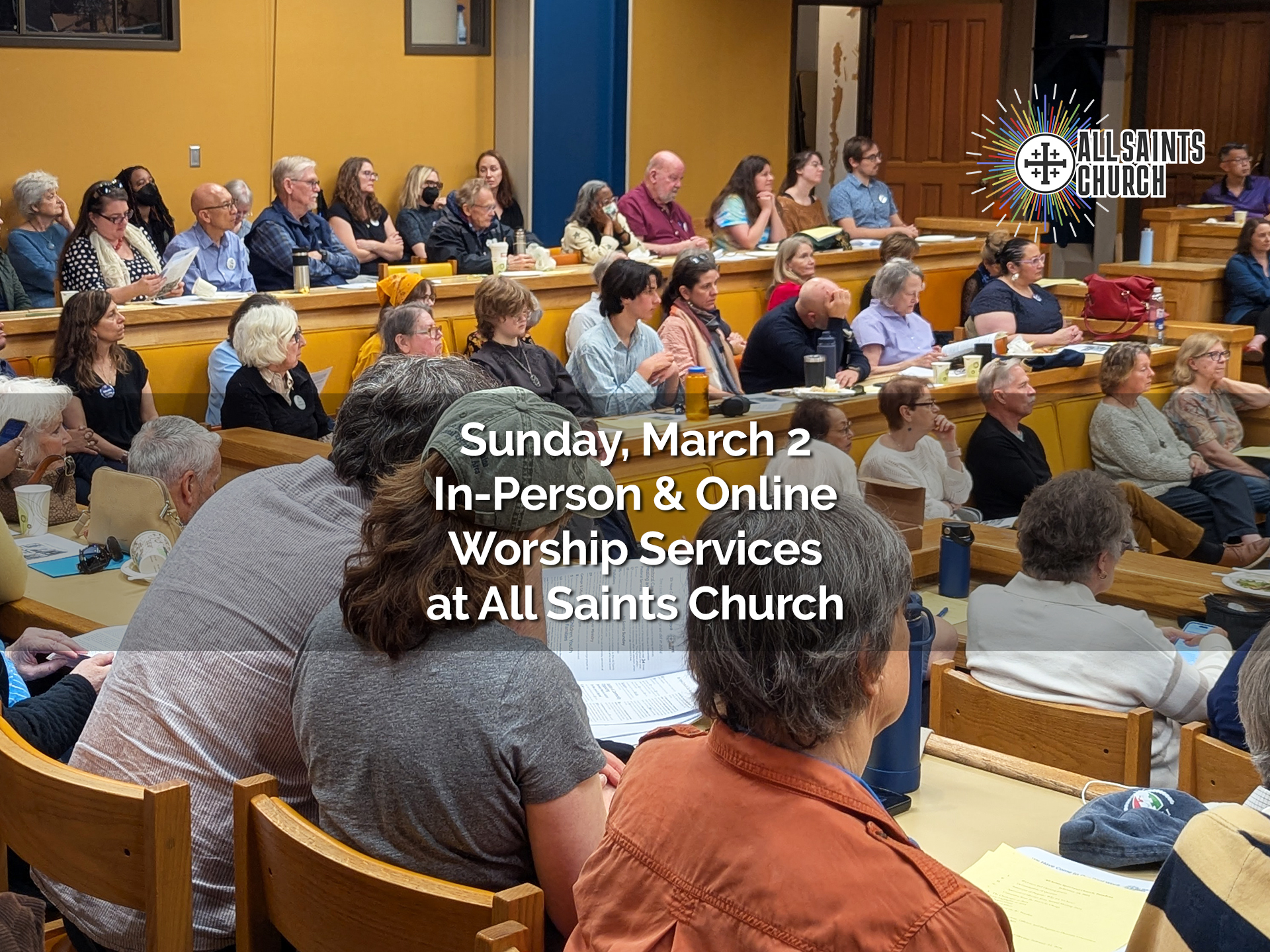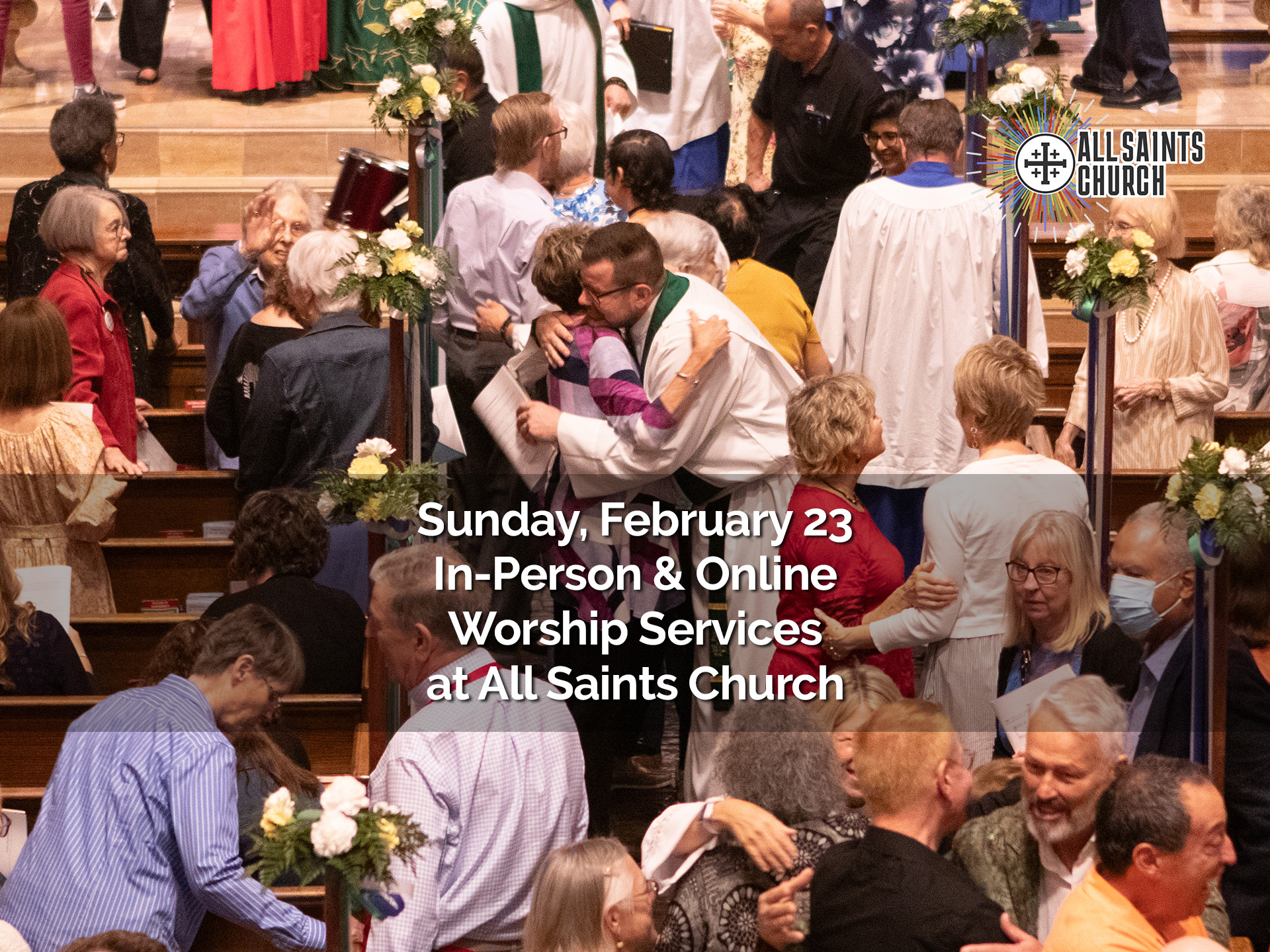“To follow Jesus is to challenge doctrines that destroy with as much passion in our day as Jesus did in his.”
Sermon by Antonio Gallardo at All Saints Church, Pasadena, on Sunday, June 3, 2018.
Is it permitted to do a good deed on the Sabbath – or an evil one? To preserve life or to destroy it?” (Mark 3:4)
========
In today’s Gospel Jesus was speaking to a crowd that had inherited a series of beliefs, like that of the Sabbath, that had been held and taught from the time of Moses. These beliefs, which by the time of Jesus had already become doctrines, also included practices that said that if you did not wash your hands before you ate (Matthew 15:1-20) not only “that made you ritually unclean, it could separate you from the holy community, and the holiness of God.” (Boring, 67). If that practice was still in place, some of us would be so separated from the holiness of God already.
By challenging these beliefs, Jesus is not nullifying the doctrines of the Torah. In a thoroughly biblical and Jewish mode what Jesus us doing is declaring the relative importance of the inner commitments of his heart, his passions, as they came to expression in the way he spoke and acted, over against the doctrines, which were still not abolished.
How do we live our Christians lives in that tension between existing doctrines, and the commitments of our hearts, our passions? I think that we live bound by doctrines, and moved by our passions. The doctrines appeal to our reason, while our passions appeal to our heart.
In one of his books entitled “The Prophet,” The Lebanese Poet Khalil Gibran said:
“Your reason and your passion are the rudder and
the sails of your seafaring soul;
reason, ruling alone, is a force confining;
and passion, unattended,
is a flame that burns to its own destruction.
I think that in our nation, in Christian Churches, and within our very own Episcopal Church, we have doctrines that are not only guiding our reason, they are acting as a force confining, limiting us in fulfilling God’s vision for its creation.
I think that the time has come for us to challenge these doctrines as Jesus did, to declare the relative importance of the inner commitments of our hearts.
Today, as your newly ordained deacon I would like to share with you four main issues on which I consider we have a lot of work to do as a community of faith in challenging existing doctrines.
Continued debate on human sexuality. Last Sunday when I shared at our New Members Class that in 1990 Late Bishop Walter C. Righter was charged with heresy in the Episcopal Church after ordaining a non-celibate gay man as a deacon, someone in the back of the room said loudly, “Really? That is so backwards.” Still, it happened not too long ago.
Our church has been dealing with LGBTQ issues for more than 40 years, and as we head to General Convention in July, there are still 8 Dioceses in the Episcopal Church where Bishops are forbidding the clergy in their dioceses to use the inclusive liturgies describing marriage as between two people – not “a man and a woman.” The deliberation and decision coming up in Austin, TX where the General Convention will be held is not on whether there is a place for traditionalists with a minority opinion on marriage equality in the Episcopal Church. It is whether those holding that minority theological perspective should have the power to deny access to the sacrament of marriage to same-sex couples seeking God’s blessing on their marriage.
The role of women in positions of leadership. I consider that the problems that those who identify themselves as women have encountered in living out their vocations throughout history have been fairly consistent: meager wages, lack of recognition, and less job security than their male counterparts.
Although we know that there has been a trend to recognize the work of women in our nation ,and in the church by providing them with more opportunities for service in positions of leadership, the gender gap calculated by the World Economic Forum does not have good news. By the end of 2017 the gender gap has worsened for women in 60 countries, in part driven by declining conditions for women in four countries, one of which is our very own, the United States. By 2016 the estimation was that it would take 170 years to close the gender gap, and in 2017 the data reflected that it would take 217 yeas for the gender gap to be closed. It seems as if we went backwards 47 years.
Those who identify themselves as women, despite how they have been treated, have demonstrated a great capacity to model compassion and collaboration, and those of us who identify as men are overdue to exercise the same.
Women in leadership have demonstrated personal and interpersonal strengths that could benefit our nation and our church if more of them were appointed to positions of governance.
We must reject the misogyny, mistreatment, violent abuse, sexual harassment, and assault of women that has been further revealed in our culture and politics, including our churches.
The meaning of being Episcopalian in the 21st century. The Episcopal Church is experiencing profound change, as it is no longer the church of the establishment bound together by a national church ideal as it was in the last century.
The realities of the postcolonial, postmodern era have challenged presuppositions about what it means to be Episcopalians, and have demonstrated that the old ways of relating based on inherited structures, nationally and internationally, have lost their efficacy in the globalized world.
The Episcopal Church has to find new and creative ways to order our common life and organize our work, both as a member of the Anglican communion, and in our Church itself.
We need to pay particular attention to groups historically not represented in the Episcopal church, such as new immigrants from Latin America, Asia, and Africa, as well as the X generation, and millennials.
Global and national issues. We need to continue becoming agents of reconciliation in a world that is torn apart by terrorism, war, poverty, and disease. Nationally, we have a lot of issues to address too, including the resurgence of white nationalism and racism in our nation on many fronts, and the way that we are treating immigrants.
We are getting to the unethical and unchristian point of separating families at the border, or killing for no reason promising people, like Claudia Patricia Gomez Gonzalez, a 20 years old CPA woman from Guatemala who traveled 1,500 miles to the United States, hoping to find a job and a better future, and who shortly after she set foot in Texas two weeks ago, a Border Patrol agent shot and killed her without her representing a threat.
The irony is that as a country, while protecting our borders, we don’t even acknowledge that these immigrants are largely the result of US foreign policy efforts in Central and south America– like the fact that The United States has quietly funded and equipped elite paramilitary police officers in El Salvador who are accused of illegally executing gang members, as it was reported by CNN last week.
As you heard, we still have a lot of work to do to make reality God’s vision for the world, and that includes work within our own Episcopal Church, and our very own country.
We have to continue the fight in our nation, and within our church for all to embrace the fact that love is love, independently of your gender expression or sexual orientation; because when it comes to love, if doesn’t matter if you identify yourself as a woman, a man, LGBTQ, or a gender non-conforming individual;
We must stand for the respect, protection, and affirmation of women in our families, communities, workplaces, politics, and churches.
We should strongly deplore the growing attacks on immigrants and refugees, who are being made into cultural and political targets;
We have to follow our call to be the Church of Pentecost, where all the voices and traditions are brought together to create the most beautiful rich songs to praise our creator.
As our Rector Mike Kinman said last week, “It is an excellent time for all of us to consider where and how God is calling us to lives of love and service.”
To serve all people, particularly the poor, the weak, the sick and the lonely, are the icons of the servant ministry to which we are all called by our baptism, If our gospel is not “good news to the poor, the weak, the sick, and the lonely,” it is not the gospel of Jesus Christ (Luke 4:18).
As your Deacon I aspire to model service for this community, and empower all of you to grow servants’ hearts and use them in the world.
I invite to let your soul exalt your reason to the height of passion;
So that it may sing to the top of her lungs;
I invite you to let your soul direct your passion with reason,
So that your passion may live through its own daily resurrection,
and like the phoenix, rise above its own ashes
And since you are all a breath in God’s sphere, and a leaf in God’s forest,
I invite you to live your lives resting in reason and moving in passion.
Amen.



